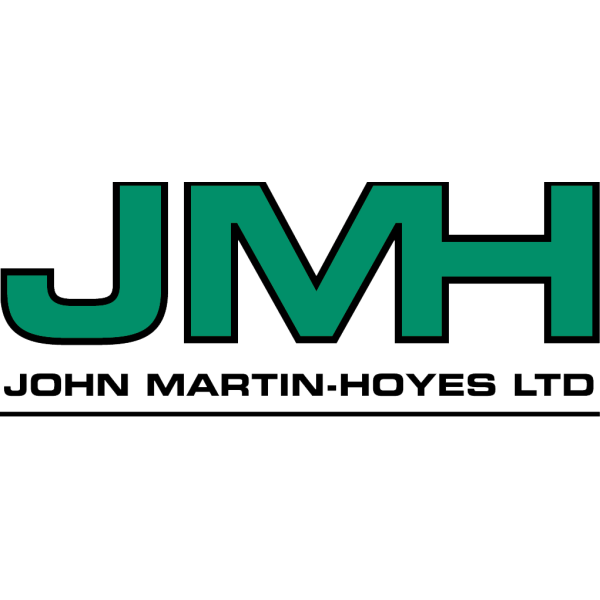Property Maintenance in Lincoln
Welcome to Spearman Interiors Ltd, your trusted partner for all your carpentry, painting, decorating, and property maintenance needs in t... read more »
John Martin-Hoyes Ltd: Premier Builders and Carpenters in Boultham Moor, Lincolnshire
Welcome to John Martin-Hoy... read more »
Welcome to KD Joinery Ltd, your premier choice for loft conversions and property maintenance in Scothern and throughout Lincolnshire. As... read more »
Welcome to G&G Professional Services LTD, your premier choice for Builders, Property Maintenance, Bathroom Installation, Kitchen Inst... read more »
Welcome to Top Painting, your trusted partner for all your painting and decorating needs in St Giles and across the beautiful county of L... read more »
Welcome to S & E Property Services, your trusted partner for comprehensive property maintenan... read more »
Cosmin Bunu Property Maintenance Lincoln is your go-to solution for all your property needs in the heart of Boul... read more »
Welcome to HomeStyle, your go-to experts for property... read more »
Welcome to Booth Construction Ltd, your premier choic... read more »
S J Installations is a premier choic... read more »
Welcome to SK Civils, your premier choice for builder... read more »
Welcome to NGD Construction Ltd, your trusted partner... read more »
LP Wood Designs: Your Premier Tradespeople in... read more »
Welcome to Prestige Electrical and Plumbing Services,... read more »
Welcome to G Chapman Brickwork, your trusted partner... read more »
Welcome to Harnett's Property Services, your go-to so... read more »
Welcome to JW Multi Trade, your go-to solution for al... read more »
Welcome to O’Keeffe Property Maintenance, your go-t... read more »
BoilerInstallation Lincoln is a trus... read more »
Search Property Maintenance in places nearby
Understanding Property Maintenance in Lincoln
Property maintenance in Lincoln is a crucial aspect of ensuring that buildings and homes remain in good condition. It involves a range of activities that keep properties safe, functional, and aesthetically pleasing. Whether you're a homeowner, landlord, or tenant, understanding the ins and outs of property maintenance can save you time, money, and stress in the long run.
The Importance of Regular Property Maintenance
Regular property maintenance is essential for several reasons. Firstly, it helps to preserve the value of the property. A well-maintained property is more likely to retain its value or even appreciate over time. Secondly, it ensures the safety of the occupants. Regular checks can prevent accidents caused by faulty wiring, leaking roofs, or broken stairs. Lastly, it enhances the property's appearance, making it more appealing to potential buyers or tenants.
Preventive Maintenance: A Proactive Approach
Preventive maintenance involves regular inspections and servicing to prevent problems before they occur. This approach can save property owners significant amounts of money by avoiding costly repairs. Common preventive maintenance tasks include checking the roof for leaks, servicing the heating system, and inspecting plumbing for leaks.
Corrective Maintenance: Addressing Issues Promptly
Corrective maintenance involves fixing problems as they arise. This could include repairing a broken window, fixing a leaky tap, or replacing damaged tiles. Prompt corrective maintenance is crucial to prevent minor issues from escalating into major problems.
Seasonal Property Maintenance Tasks
Different seasons bring different challenges for property maintenance in Lincoln. Each season requires specific tasks to ensure the property remains in top condition.
Spring Cleaning and Repairs
Spring is the perfect time to tackle cleaning and repairs. Tasks include cleaning gutters, checking the roof for winter damage, and servicing air conditioning units. It's also a good time to inspect the exterior paintwork and make any necessary touch-ups.
Summer Landscaping and Exterior Work
Summer is ideal for landscaping and exterior work. Mowing the lawn, trimming hedges, and planting flowers can enhance the property's curb appeal. It's also a good time to paint fences, repair driveways, and clean windows.
Autumn Preparations for Winter
As autumn approaches, it's important to prepare the property for winter. This includes checking the heating system, insulating pipes, and sealing windows and doors to prevent drafts. Clearing leaves from gutters and drains is also essential to prevent blockages.
Winter Safety and Maintenance
Winter maintenance focuses on safety and preventing damage from cold weather. Tasks include checking for ice dams on the roof, ensuring paths are clear of snow and ice, and keeping the heating system in good working order. It's also important to check smoke and carbon monoxide detectors.
Hiring Professional Property Maintenance Services
While some property maintenance tasks can be handled by the property owner, others require professional expertise. Hiring a professional service can ensure that maintenance tasks are completed to a high standard and comply with local regulations.
Choosing the Right Property Maintenance Company
When selecting a property maintenance company in Lincoln, consider factors such as experience, reputation, and range of services offered. It's also important to check that the company is licensed and insured. Reading reviews and asking for recommendations can help you make an informed decision.
Benefits of Professional Property Maintenance
Professional property maintenance services offer several benefits. They have the expertise and equipment to handle complex tasks, saving you time and effort. They can also provide regular maintenance schedules, ensuring that all necessary tasks are completed on time. Additionally, professional services can offer peace of mind, knowing that your property is in good hands.
DIY Property Maintenance Tips
For those who prefer a hands-on approach, there are several property maintenance tasks that can be done without professional help. However, it's important to know your limits and call in the experts when necessary.
Basic Tools for Property Maintenance
Having the right tools is essential for DIY property maintenance. Basic tools include a hammer, screwdriver set, pliers, tape measure, and a ladder. For more advanced tasks, you may need a power drill, saw, and plumbing tools.
Simple Maintenance Tasks You Can Do Yourself
There are several simple maintenance tasks that can be done by the property owner. These include changing light bulbs, replacing air filters, and unclogging drains. Regularly checking smoke detectors and cleaning gutters are also tasks that can be handled without professional help.
Understanding Local Regulations and Standards
Property maintenance in Lincoln must comply with local regulations and standards. These regulations ensure the safety and well-being of occupants and the community.
Building Codes and Safety Standards
Building codes and safety standards set out the minimum requirements for property maintenance. These include regulations on electrical systems, plumbing, and structural integrity. It's important to stay informed about these regulations to ensure compliance.
Environmental Considerations
Environmental considerations are becoming increasingly important in property maintenance. This includes using eco-friendly materials, reducing energy consumption, and managing waste responsibly. Implementing sustainable practices can also enhance the property's value and appeal.
Cost Considerations for Property Maintenance
Property maintenance costs can vary widely depending on the size and condition of the property, as well as the tasks required. It's important to budget for maintenance to avoid unexpected expenses.
Budgeting for Regular Maintenance
Creating a maintenance budget involves estimating the costs of regular tasks such as cleaning, servicing systems, and minor repairs. Setting aside a portion of the property's income for maintenance can help ensure funds are available when needed.
Handling Unexpected Repairs
Unexpected repairs can arise at any time, and it's important to be prepared. Having an emergency fund for repairs can provide financial security and prevent stress. It's also wise to have a list of trusted contractors who can be called upon in an emergency.
Frequently Asked Questions
- What is property maintenance? Property maintenance involves keeping a property in good condition through regular inspections, repairs, and servicing.
- Why is property maintenance important? It preserves property value, ensures safety, and enhances appearance.
- What are some common property maintenance tasks? Common tasks include cleaning gutters, servicing heating systems, and repairing leaks.
- Can I do property maintenance myself? Yes, many tasks can be done DIY, but some require professional expertise.
- How do I choose a property maintenance company? Consider experience, reputation, and services offered. Check for licensing and insurance.
- What should I budget for property maintenance? Budget for regular tasks and set aside an emergency fund for unexpected repairs.
Property maintenance in Lincoln is a vital part of property ownership and management. By understanding the importance of regular maintenance, hiring professional services when necessary, and staying informed about local regulations, property owners can ensure their properties remain safe, functional, and attractive. Whether you choose to handle maintenance tasks yourself or hire a professional, taking a proactive approach can save you time, money, and stress in the long run.
Send a message











